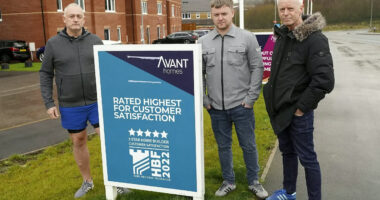YOU could be missing out on free cash because you have the wrong kind of account.
Up to £268billion worth of household savings altogether is sitting in accounts, paying no interest, according to Coventry Building Society.
That figure is £9.6billion more compared to this time last year.
It’s calculated out of a total of £1.26trillion in household savings in flexible accounts.
It comes from the building society’s analysis of the latest Bank of England data.
Customers are starting to take advantage of higher-rate deals by putting money into a savings account.


Jeremy Cox, head of strategy at Coventry Building Society, said: “People are saving to make the most of higher interest rates, particularly in fixed accounts as well as managing their spending to balance sharp rises in the cost of living.
“As we enter the new year, rates of around 3% are readily available in the savings market and we expect money going into zero paying easy access accounts to lower as savers shift money into higher rate accounts to maximise their savings pots.”
In November, there was an increase in cash held in current accounts, easy access, fixed rate bonds and cash ISAs compared to October.
Mr Cox warned that higher rates could also risk exceeding Personal Savings Allowances.
Most read in Money
The current allowance gives basic taxpayers a tax-free allowance of £1,000, while higher-rate taxpayers get an allowance of £500.
That is, however, unless their savings are protected by an ISA.
Everyone over the age of 16 in the UK gets an ISA (Individual Savings Account) allowance, which lets them save cash tax-free.
It’s a tax-efficient way of saving up to £20,000 a year.
How to know whether you have the right account
Last month, the Bank of England increased base rates to 3.5% last month, up by 50 basis points.
This was the ninth time in a row that the BoE increased the base rate in a bid to tackle rising costs.
The rate changes will affect you if you’ve got debt, including a mortgage, but it’s good news for savers.
However, do check any existing account you have to make sure it’s worthwhile, because not every savings account pays a lot.
For example, some instant access savings accounts like No Notice accounts can start from as little as 0.2%.
This is the average rate for a No Notice account, which is down from 1.56% last year, according to MoneyFacts.
Notice accounts are currently averaging at 0.56% – down from 2.43% last year.
And if you’re looking at fixed accounts, a one-year fixed account is currently averaging at 0.82%, while a two-year fixed account is averaging at 0.93%
These are down from 3.56% and 3.83%, respectively.


Of course, this may rise and fall depending on which banks you decide to go with.
Research websites like MoneyFacts.co.uk and price comparison websites such as Compare the Market, Go Compare and MoneySupermarket will help save you time and show you the best rates available.










